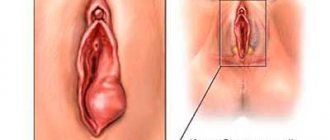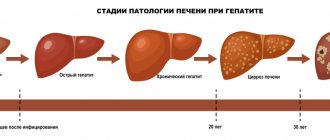January 24, 2012
The cause of many health problems is usually sought in hormonal imbalances. What are hormones and how do they work?
Hormones are special chemical messengers that regulate the functioning of the body. They are secreted by endocrine glands and travel through the bloodstream, stimulating certain cells. The term “hormone” itself comes from the Greek word “to excite.” This name accurately reflects the functions of hormones as catalysts for chemical processes.
at the cellular level.
How were hormones discovered?
The first hormone discovered was secretin
, a substance that is produced in the small intestine when food reaches it from the stomach.
Pleasure hormones
In a variety of popular texts about health you can find the mysterious phrase “pleasure hormone.” How do these hormones work and how do you get them?
Secretin was discovered by English physiologists William Bayliss and Ernest Starling in 1905.
They found that secretin is able to “travel” through the blood throughout the body and reach the pancreas, stimulating its work. And in 1920, Canadians Frederick Banting and Charles Best isolated one of the most famous hormones from the pancreas of animals - insulin
.
What is a hormonal test?
Many processes in the human body directly depend on the amount of hormones in the blood. They control our life and health from birth. It is thanks to hormones that we adapt to environmental conditions, fall in love, have children and, in general, exist normally. And if any of them is disrupted, this leads to hormonal imbalance, and this can already have very serious and dangerous consequences for a person.
There are three groups of human hormones:
- Releasing factors are synthesized in the hypothalamus. Their task is to ensure a stable connection with the nervous system and control the functioning of the pituitary gland.
- Tropic substances are synthesized in the pituitary gland and are responsible for the functioning of parts of the endocrine system.
- Hormones of the endocrine glands - affect the functioning of target organs.
Hormonal blood tests are usually not prescribed just like that. That is, if a person undergoes a routine examination or a medical commission, he will not have his hormonal levels and endocrine system examined. Such tests are carried out only in cases where the patient is suspected of having an endocrine disease, thyroid disorders, diabetes mellitus, etc. Also, hormonal testing of blood and urine is mandatory for women suffering from infertility, menstrual irregularities, overweight, frequent miscarriages. During pregnancy, all women are tested for hormones, because hormonal imbalance in the female body can have very disastrous consequences for both the mother and the unborn child. And hormonal studies, the results of which can help identify any pathology in time, play an important role in the birth of a healthy child.
So what are hormonal studies? This is a blood or urine test for the content of certain hormones, which allows doctors to see how the human endocrine system and individual parts of the brain work. With the help of such laboratory tests, a doctor can thoroughly study the physiological state of a person and identify many dangerous pathologies. Polycystic ovary syndrome, endemic goiter, diabetes mellitus - all these diseases are detected by hormonal testing of blood and urine.
Many women encounter the most accessible hormone test in their lives - a pregnancy test that can be done at home. It measures the level of hCG (human chorionic gonadotropin) in the urine. However, other hormonal studies are carried out strictly in laboratory conditions, since this is a rather complex analysis. Hormonal studies and interpretation of their results can only be done by specialists.
It is important to remember that in different laboratories, hormone levels are indicated by different units of measurement - therefore, the results of hormonal studies will look different.
What do hormones do?
Hormones cause changes in the functions of various organs according to the body's requirements. Thus, they maintain the stability of the body, ensure its responses to external and internal stimuli, and also control the development and growth of tissues and reproductive functions. The control center for the overall coordination of hormone production is in the hypothalamus
, which is adjacent to the pituitary gland at the base of the brain.
Thyroid hormones
determine the rate of chemical processes in the body.
Adrenal hormones
prepare the body for stress—the “fight or flight” state.
Sex hormones
- estrogen and testosterone - regulate reproductive functions.
Interpretation of analyzes
Thyroid hormones
Triiodothyronine , or T3, gives a general assessment of the functioning of the thyroid gland. This hormone is determined both in free form (normal: from 2.6 to 5.7 pmol/l.) and in the serum state (general form; normal: from 1.3 to 2.7 nmol/l). An increase in the indicator indicates the use of narcotic substances: methadone, heroin, amphetamine, HIV infection, renal failure, hyperthyroidism. A decrease was established with the use of androgens, danazol, dexamethasone, and propranolol.
Thyroxine , or T4, regulates energy metabolism in the body. Normal: 10.8 - 22.0 pmol/l. Low levels are observed in hyperthyroidism and hemolysis. Increased levels – when taking oral contraceptives, methodone, heroin, estrogens.
Thyroglobulin , or Tg, is prescribed for suspected malignant neoplasms. Normal: <55 ng/ml.
Antibodies to thyroglobulin - prescribed for suspected autoimmune diseases of the thyroid gland. Normal: 0 - 18 U/ml.
Microsomal antibodies are the most accurate indicator of the presence of autoimmune diseases. Deviation from the norm <5.6 U/ml is evidence of aggression of the immune system towards its own body.
Thyroxine-binding globulin , or TSG, is responsible for transporting the hormones T3 and T4. Normal: from 16.8 to 22.5 mcg/ml. An increased indicator may indicate pregnancy, a decreased indicator may indicate cirrhosis of the liver.
Adrenal hormones
Cortisol – regulates carbohydrate metabolism. Norm: from 230 to 750 nm/l. A low indicator may be the result of chronic adrenal insufficiency, and a high indicator may indicate oncology or adenoma.
Aldosterone is responsible for water-salt balance. Norms: in a horizontal position 17.6-230.2 pg/ml; in a vertical position 25.2-392 pg/ml. Elevated levels of the hormone in the blood usually indicate an adrenal tumor.
Norepinephrine and adrenaline - normalize heart rate, blood pressure, and form glucose levels. Norms: from 1.92 to 2.46 nm/l for adrenaline, from 0.62 to 3.23 nm/l for norepinephrine. An increase in indicators indicates kidney disease, Itsenko-Cushing syndrome, emotional and physical stress in the body, a decrease indicates pathologies of the hypothalamus.
Sex hormones
Estradiol is responsible for the production of germ cells and the proper development of pregnancy. The norm in the first phase of the menstrual cycle (follicular phase) is from 200 to 285 pm/l, the norm in the corpus luteum phase (luteal phase) is from 440 to 575 pi/l, during menopause from 50 to 133 pm/l. A reduced indicator may indicate a tumor in the ovaries, an increased indicator may indicate their insufficient functioning.
Testosterone is the main male hormone. Responsible for the formation of secondary sexual characteristics, stimulates the growth of muscle mass and bones. Norms: for men – 2 -10 ng/ml, for women – 0.2 – 1 ng/l.
Progesterone – ensures the proper development of the genital organs in women. The norm in the first phase of the menstrual cycle (follicular phase) is from 1 to 2.2 nm/l, the norm in the corpus luteum phase (luteal phase) is from 23 to 30 nm/l, during menopause from 1 to 1.8 nm/l . An increase in the indicator is observed with tumors of the adrenal cortex, a decrease is observed with ovarian sclerosis.
What hormones are there?
There are two types of hormones: steroids and peptides
.
Steroids
are produced by the adrenal glands and gonads from cholesterol.
A typical adrenal hormone is the stress hormone cortisol
, which activates all body systems in response to a potential threat.
Other steroids determine the physical development of the body from puberty to old age, as well as reproductive cycles. Peptide
hormones mainly regulate metabolism. They consist of long chains of amino acids and for their secretion the body needs a supply of protein.
Hormones and excess weight
The speed at which metabolic processes occur in the body is regulated, among other things, by hormones. How do they affect body weight? We talk in detail in the article “Hormones and excess weight.”
A typical example of peptide hormones is
growth hormone
, which helps the body burn fat and build muscle.
Another peptide hormone, insulin
, triggers the process of converting sugar into energy.
GMO
GMO means “genetically modified organism”, i.e. an animal or plant whose DNA (a kind of cellular blueprint) has been altered without the use of natural methods of reproduction. Individual genes are transferred from one organism to another. This allows crops to be grown that have traits such as resistance to insect damage and herbicides. For example, in the case of genetically modified corn, genes from a bacterium that is resistant to herbicides are introduced into the plant. As a result, corn also becomes resistant to herbicides. Monsanto, a leading company producing genetically modified seeds, also sells the herbicide Roundup, which contains a chemical called glyphosate. Many GMOs, such as soy, corn, beet sugar, canola and alfalfa, are engineered to be resistant to Roundup. These patented varieties of plants are known as Roundup Ready because they allow farmers to avoid retaliation for spraying herbicide because the chemical kills weeds without killing crops.
Monsanto states that people in the modern world have consumed "trillions of genetically modified foods" without any harm to their health. However, there were no human surveys, only short-term (three-month) animal studies, and the lion's share of these studies were carried out by Monsanto itself. A longer independent animal study (conducted by a French scientist named Gilles-Eric Séralini) found some serious negative effects, such as causing tumors, organ failure, stomach damage, liver damage, kidney damage, allergic reactions and more. Unfortunately, this study was retracted, which almost never happens. This shows how powerful Monsanto's influence is. Séralini's team reported that 50 percent of male and 70 percent of female rats died prematurely, compared with 30 percent and 20 percent in the control group. Monsanto has great political clout, which it has used to change product labeling laws - laws that now prevent us from knowing whether our food contains genetically modified ingredients. The only way to control this is to make sure you are consuming organic foods or foods that are labeled “non-GMO.” But you can be sure that the vast majority of soy and corn are genetically modified. Avoid GMOs if at all possible, because we are all being experimented on and, unfortunately, the truth about the harm done will come out years after the companies have made their billions.
Foods That Can Counter Fat-Building Hormone
One of the goals of the eating plan, which I explain later in the book, is to reduce the amount of chemicals in your food that mimic estrogen (the fat-building hormone). Certain foods increase estrogen levels, while others decrease them. There is a group of foods that are antiestrogens and antitoxins - cruciferous: cabbage, broccoli, cauliflower, radishes, kale, Brussels sprouts, etc. Cruciferous comes from the Latin word “crux”, which means “cross”, since the flowers of these vegetables are shaped like a cross. If you need to combat chemicals in your body, it makes sense to eat as many of these vegetables as possible or take them as a dietary supplement.
To make a natural cleaning liquid for washing vegetables, mix 1/3 cup of apple cider vinegar with about 4 quarts of water. This mixture will help wash away the chemicals on the surface of the vegetables, although it won't remove the chemicals inside. Also, break off and discard the outer leaves of leafy vegetables. Remove fat from meat and skin from chicken and fish if commercial. Also, if you have to choose between meat and fish in the store, it’s better to go with fish. It takes 60 kilograms of feed and hay (which contains pesticides) to produce 1 kg of edible beef, not to mention the growth hormones given to cattle throughout their lives. To produce 1 kg of edible fish, only 1 kg of feed is required, therefore there are fewer hormone disrupting chemicals.
Coffee
Someone who drinks 2 cups of coffee a day buys approximately 8 kg of coffee beans per year, i.e. total harvest from 12 coffee trees. To maintain the productivity of these trees, coffee farmers apply 5-plus kilograms of fertilizers and pesticides every year. Although my program will recommend not drinking coffee, I recommend drinking organic coffee during the transition period. Coffee also contains caffeine and damages your adrenal glands, which can prevent you from burning fat.
Organic means without the use of chemical fertilizers, pesticides, fungicides, herbicides and insecticides. When you read labels, make sure they say “organic” and not “natural.” It's not the same thing. “Natural,” in legal terminology, simply means that no chemicals were used in the processing of the product. “Natural” can imply many different qualities, but does not mean free from pesticides or insecticides. I'm not saying you should start eating 100% organic tomorrow. However, I would recommend eating at least 50% organic foods. You’re not going to go to your friend’s house for lunch right now and say: “You know, I read an article on the Internet, and uh….. I noticed that the food you’re treating me to is full of pesticides, insecticides, herbicides, heavy metals, antibiotics and growth hormones. And this tuna contains mercury. So I brought some food with me.” You shouldn’t do this, it’s not accepted in society, you simply won’t be invited another time. Maybe that's why no one invites me to dinner anymore.
Fat Burning Hormones and Fat Storage Hormones To recognize the hormones that trigger the fat burning process that results in weight loss, it's a good idea to know what they are. Below you will find information not only about fat-burning hormones, but also about hormones that help store fat, because you want to avoid their activation.











